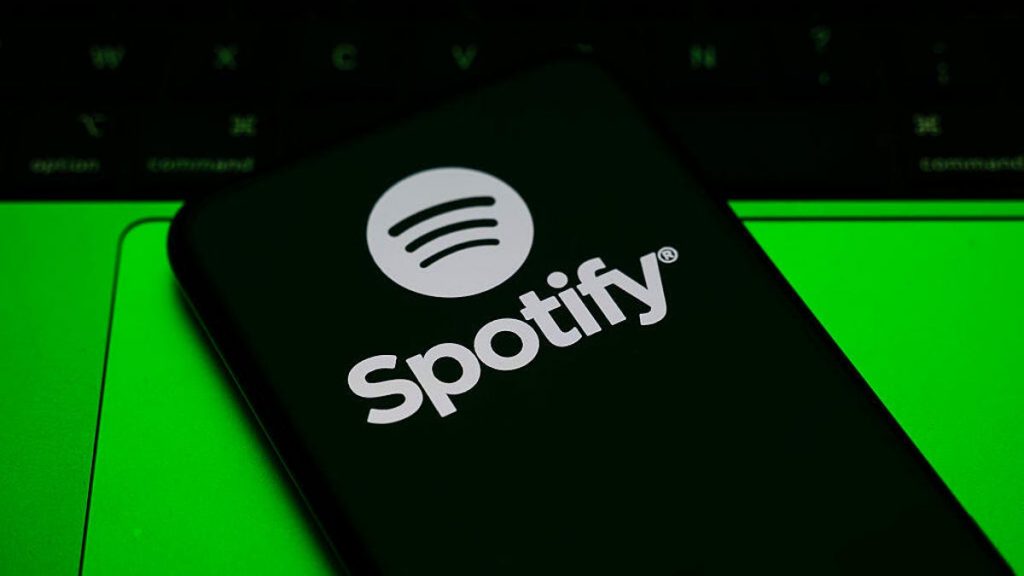There’s something sacred about building a playlist.
It’s not just dragging songs into a queue. It’s about constructing a perfect atmosphere, like a pillar of solid emotional architecture. Music plays a transformative role in soundtracking our lives. Certain melodies can bring us back to a particular moment in our history. A lyric can hit us right in the gut like a sucker punch. A song can remind you of home or make you feel closer to a special person who’s away. A good playlist isn’t about algorithmic compatibility. It’s about instinct and, in many ways, love.
Now, apparently, ChatGPT can do it for you.
At OpenAI’s Dev Day last month, CEO Sam Altman introduced the company’s latest App SDK, which lets developers plug their services directly into ChatGPT. One of the first integrations is Spotify, along with Zillow, Coursera and others. The idea is that you can ask ChatGPT to «make a playlist for a dinner party,» or any other occasion, and it’ll pull songs straight from Spotify, without any clicking, thinking or curating required.
Read more: Spotify’s Free Tier Changes: Play the Song You Want Whenever You Want
Of course, I didn’t want to knock something without trying it first.
When I clicked into ChatGPT, I simply started typing «Spotify» in the box, and the interface recognized the app. I led with the prompt: «Spotify Can you help me make a playlist for a Friendsgiving party? I need a playlist that is mostly catered to people in their mid-20s to 40s, but isn’t too specific to one genre or artist.»
Once I hit enter, ChatGPT asked me to log into my Spotify account and agree to allow ChatGPT access to my account, which I really hated to do. (I immediately revoked access after this exercise.)
It put together a «Friendsgiving Party Mix» that leaned heavily into 2000s and 2010s pop music. Like, literally every single song was a pop song. The playlist included some songs and artists that I love (HOT TO GO! and party 4 u, especially), but most on the list are songs I rarely, if ever, listen to because I just don’t like them that much or think they’re overplayed. Sorry, Benson Boone.
Honestly, it was very strange to review the songs it picked, considering I’ve actively kept most of them out of my curated playlists and very few of them are among my Liked songs. Some I haven’t even heard before… Again, sorry, Benson Boone. I wouldn’t exactly feel comfortable putting them on at a party without knowing if they’re actually, well, good. I certainly don’t want to face my audiophile friends and sheepishly explain that the reason the playlist is so bad is that ChatGPT made it.
Isn’t the point of a special party playlist that it’s something I’m sharing with my friends? Shouldn’t I have a reason for sharing those songs?
OK, sure. It’s convenient. But I can’t help thinking, do we actually need this?
Spotify already runs on more AI than most of us realize. Its daily mixes, Discover Weekly and «Made for You» playlists are eerily good at guessing what songs you want to hear. If what you want is a frictionless, machine-generated soundtrack, Spotify’s had you covered… for years. The magic of those features is that they appear instantly and quietly, and are there in a pinch if you just need to put something on for a quick drive or dog walk.
So what does ChatGPT add here, exactly? Another step between you and the thing you already have? A conversational interface for an algorithm that was already working in its own way?
Music is one of the few parts of the internet that still feels deeply personal. Curating a playlist — whether for a party, a breakup or just surviving a Tuesday workday — is an act of care. Handing that over to a chatbot feels like outsourcing the fun part.
It’s becoming increasingly apparent that OpenAI wants ChatGPT to be the universal interface for everything. But there’s something to be said for keeping humanity in how we build and share the art that changes, shapes and pilots our lives. Some things just simply don’t need to be automated.
